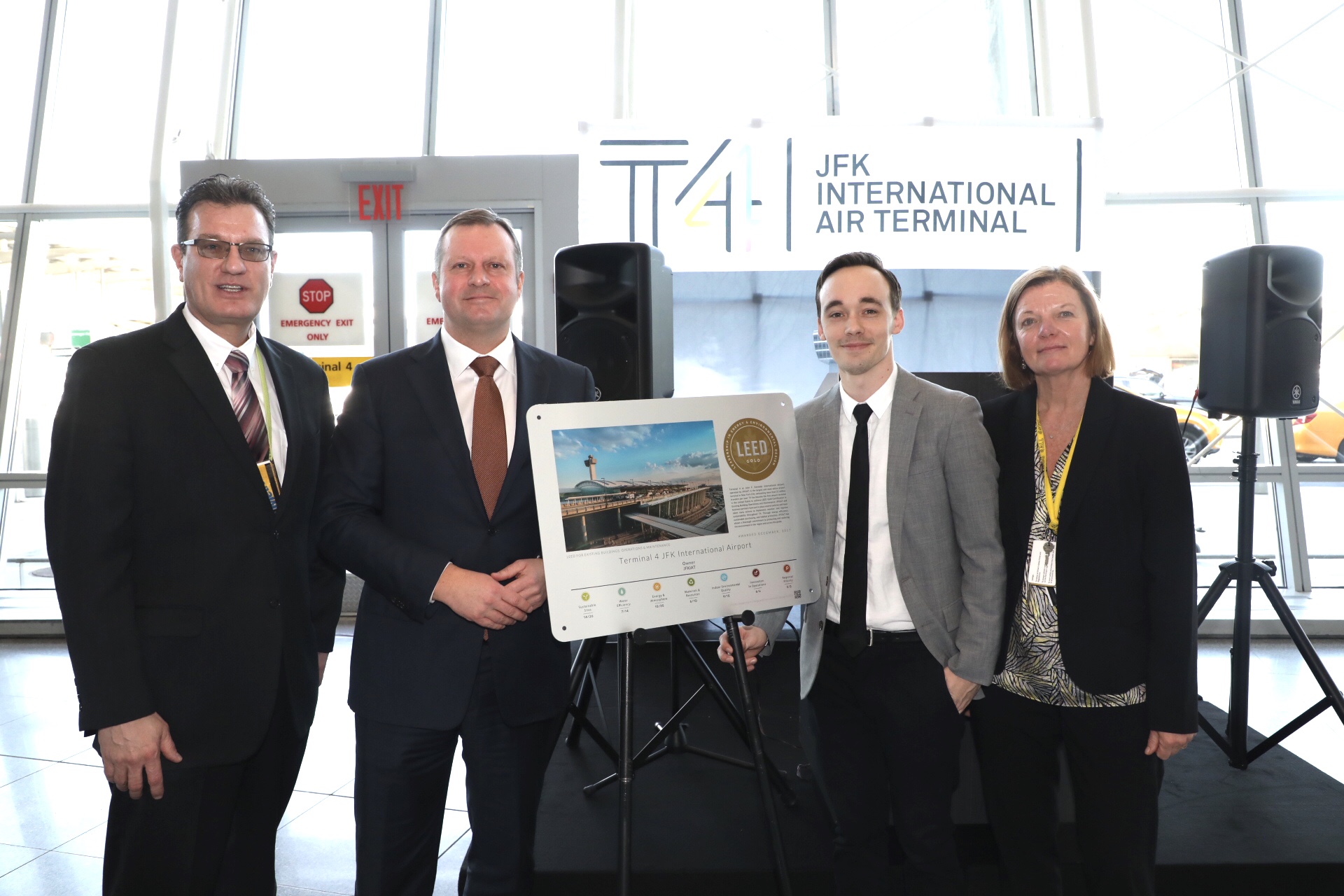NYC-area travelers now have a reason to feel good about flying out of John F. Kennedy (JFK) airport, Terminal 4 to be exact.
Today, JFK International Air Terminal (JFKIAT), which operates Terminal 4 (T4), announced that the U.S. Green Building Council had awarded Leadership in Energy and Environmental Design (LEED) for Existing Buildings: Operations and Maintenance Gold certification to the structure. CodeGreen, an energy and sustainability consultancy, spent more than a year helping JFKIAT complete the certification process.
This marks the first time any air terminal in the U.S. has earned LEED Gold.
“Receiving LEED Gold certification is an incredible accomplishment for T4,” said Gert-Jan de Graaff, President and CEO of JFKIAT (pictured, second from the left), in a Feb. 13 announcement. “This certification is the culmination of hundreds of hours of hard work and recognizes our efforts to lead the way in environmental protection and energy savings, and our dedication to improving environmental quality for our employees, airlines, partners and more than 21 million annual passengers.”
Scoring LEED Gold was no small feat.
Terminal 4 is the largest terminal at JFK, spanning two million square feet and serving more than 21 million passengers each year, according to the official website. In 2017, the Terminal 4 recycled nearly half (45 percent) of its total waste. It consumes 34 percent less water than similar buildings and beats other airport terminals in terms of energy management performance by 30 percent.
Greener terminals aside, the air travel industry is exploring other ways of reducing its environmental impact.
Australian airline Quantas recently completed an 8,000 flight between Los Angeles and Melbourne on renewable jet fuel, reported Energy Manager Today. The fuel is based on Carinata oil from non-edible mustard seeds engineered by Agrisoma Biosciences and was produced by AltAir Paramount using a renewable jet fuel process technology from Honeywell UOP.
Norway, meanwhile, has set a goal to have 100 percent of all its short-haul flights (1.5 hours or less) take place on fully electric planes by 2040. It may not be as far-fetched as it seems, considering EasyJet’s plans to operate electric passenger flights within a decade, noted Treehugger in its report.
Image credit: JFKIAT – Pictured: Shawn Makinen, vice president of Facilities for JFKIAT, Gert-Jan de Graaff, PRESIDENT and CEO of JFKIAT, Jonathon Matle, associate technical Director for CodeGreen Solutions, Sharon Murray, JFKIAT


Leave a Reply